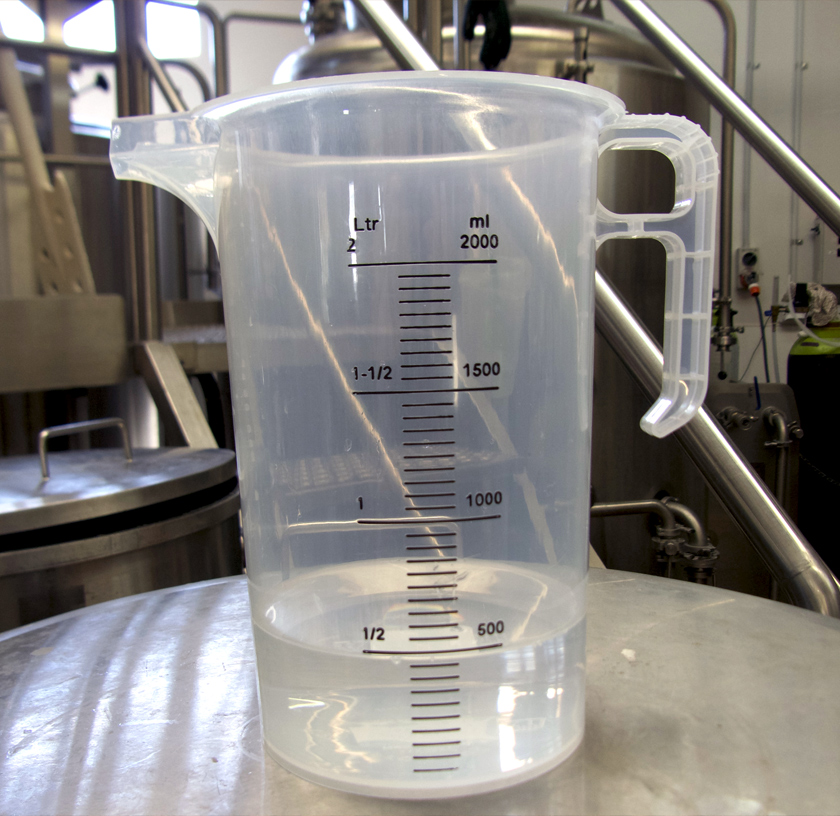Calibrated Jugs & Scoops: Why They’re So Beneficial for Customers
03 June 2021

We often take for granted that the measurements we use in our daily lives are accurate. We expect our bathroom scales to tell us the truth about our weight, we expect kitchen measures to be accurate, and we depend on the measures we use with medicines and chemicals to be accurate.
But, what if they’re not? All too often, the measuring products offered for sale have not been calibrated, which can cause huge problems down the line.
What is calibration?
Calibration is simply the process of ensuring a measuring instrument gives the most accurate result possible.
Why is calibration so important?
Without calibration, your measurements aren’t going to be entirely accurate. While it’s unlikely that the measurements will be off by much, it can still make a huge difference. Some products require precise measurements, and even those that can be a little off add up over time, which can mean your customer over or under uses a product giving a cumulative negative effect.
Of course, if you are using your jugs and scoops in a laboratory setting for testing, then it is essential your measuring products are properly calibrated. Using uncalibrated products can throw the consistency of tests and render results useless.
Any application in which the measurement will have a significant or even minor effect on the outcome should have a measuring device that has been properly calibrated.
What are the advantages of calibrated measuring products?
The benefits of calibrated measuring jugs and scoops cannot be underestimated. Here are some of the benefits:
- Accurate, reliable testing
- Proven, reliable results for your customers
- Increased profitability through improving reputation, increasing customer loyalty and improving cost-effectiveness
- They have been assured of their quality and accuracy
- Reduce margins for error
- Reduce the likelihood of recalls, fines, or simply just angry or confused customers
- Improves the safety of your product
- Reduces costs for you or your customers since you know they aren’t overusing your product
- Extend the life of any equipment used
- High levels of professionalism and you can create trust with your customers and clients – a high level of accuracy proves care and quality control
- Avoid creating situations in which you may be outed as “deceptive” because consumers expect your measures to be 100% accurate
What are some examples of the importance of calibration?
Here are some examples of the importance of calibration at work:
- Food & Animal Food: Without the correct measurements, food standard may vary from batch to batch and may not contain the same nutritional information as displayed, leading to underfeeding or overfeeding
- Chemicals: Chemical treatments can become toxic or ineffective if over or under the recommended dose
- Testing: Results from product testing will be inaccurate and void if non-calibrated measuring instruments are used
- Trade: without the correct measurements, many solvents, mixes, and solutions would be inaccurate and inefficient
- Medicines: medicines must be given at the correct dosage to achieve the correct results without potentially disastrous overdosing
- Industrial: many lubricants and other liquids must be used at just the right measure for processes and machinery to run smoothly
Without calibrated measuring products, you’re leaving a lot to chance. In some areas, this may not be an issue, but in laboratory settings, food and beverage settings, and chemical uses, it will be. Your staff or customers may over or underuse a product, leading to reduced cost-effectiveness, unreliable results, and often negative results.
If you’re looking for accurate, food-grade plastic measuring jugs and scoops, we’re here to help. To find out more about what we do or to request a quote, click here.